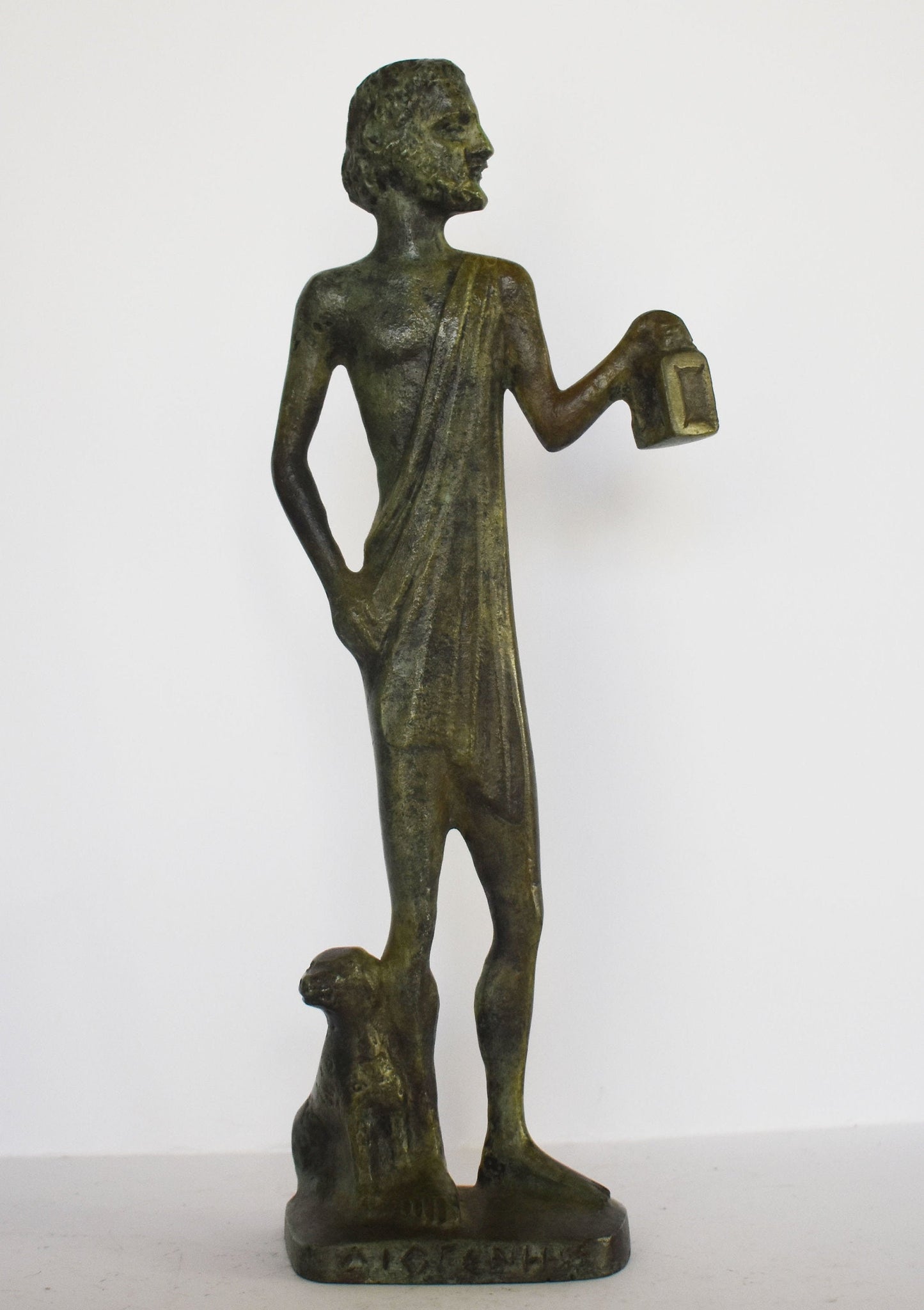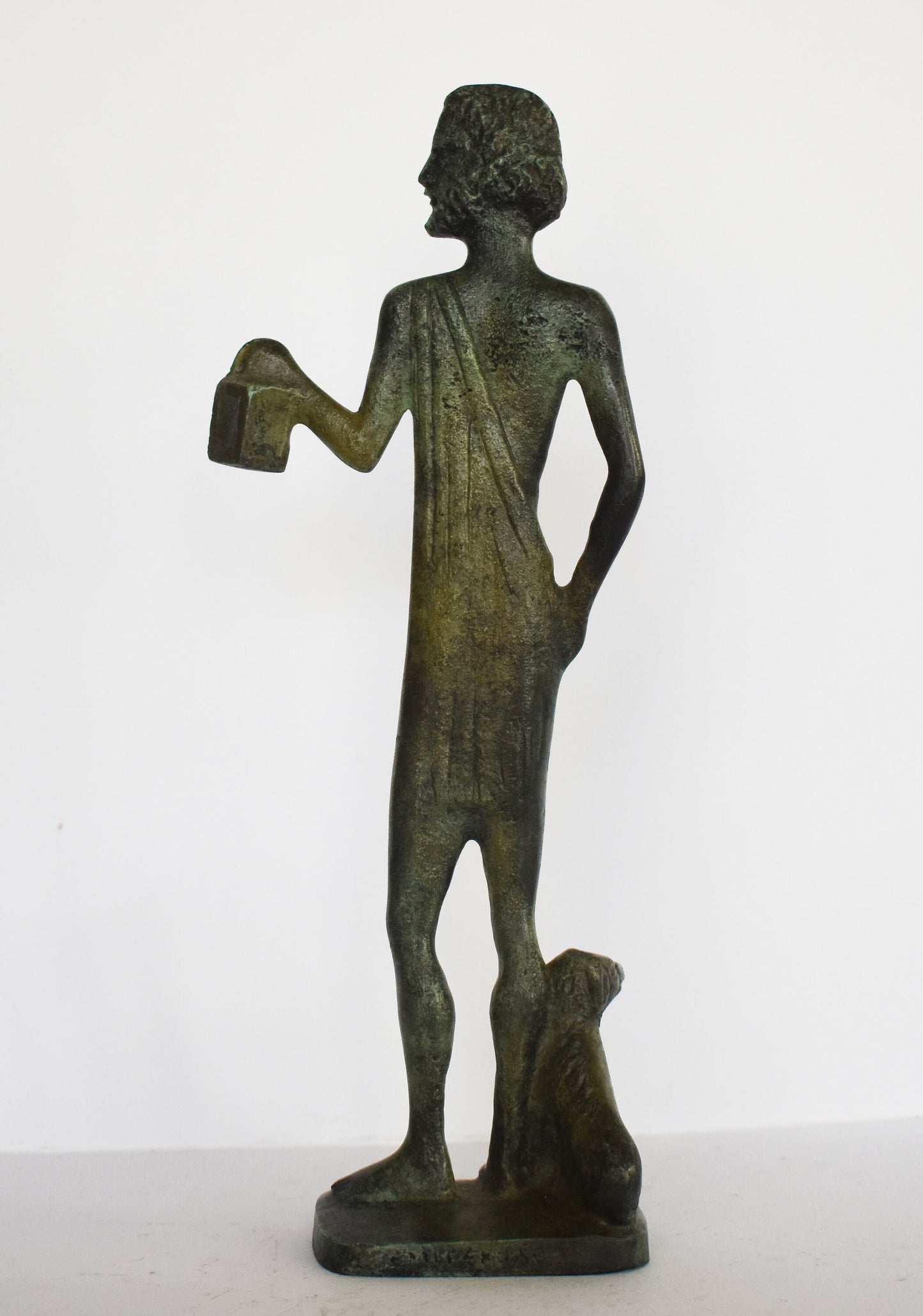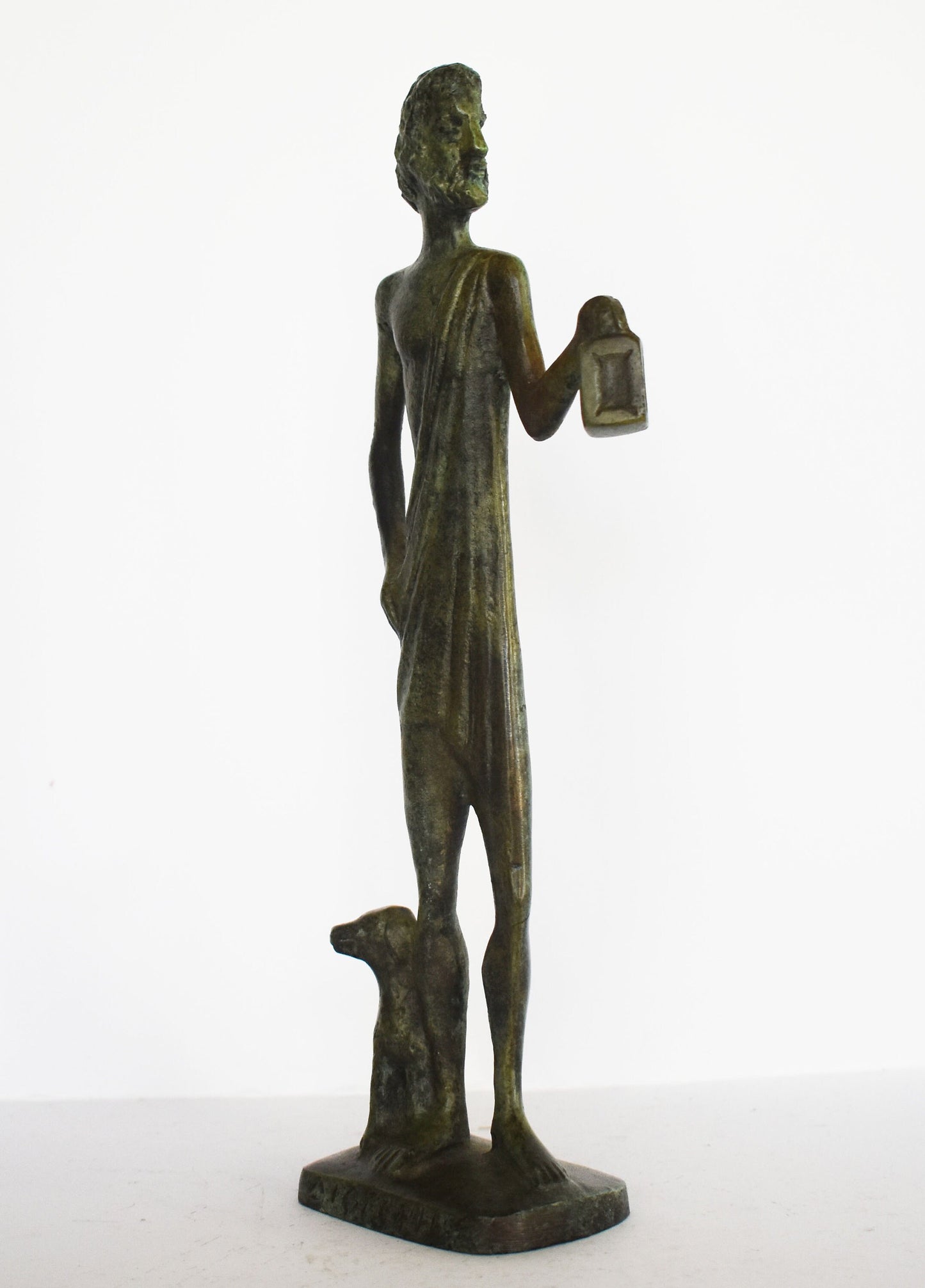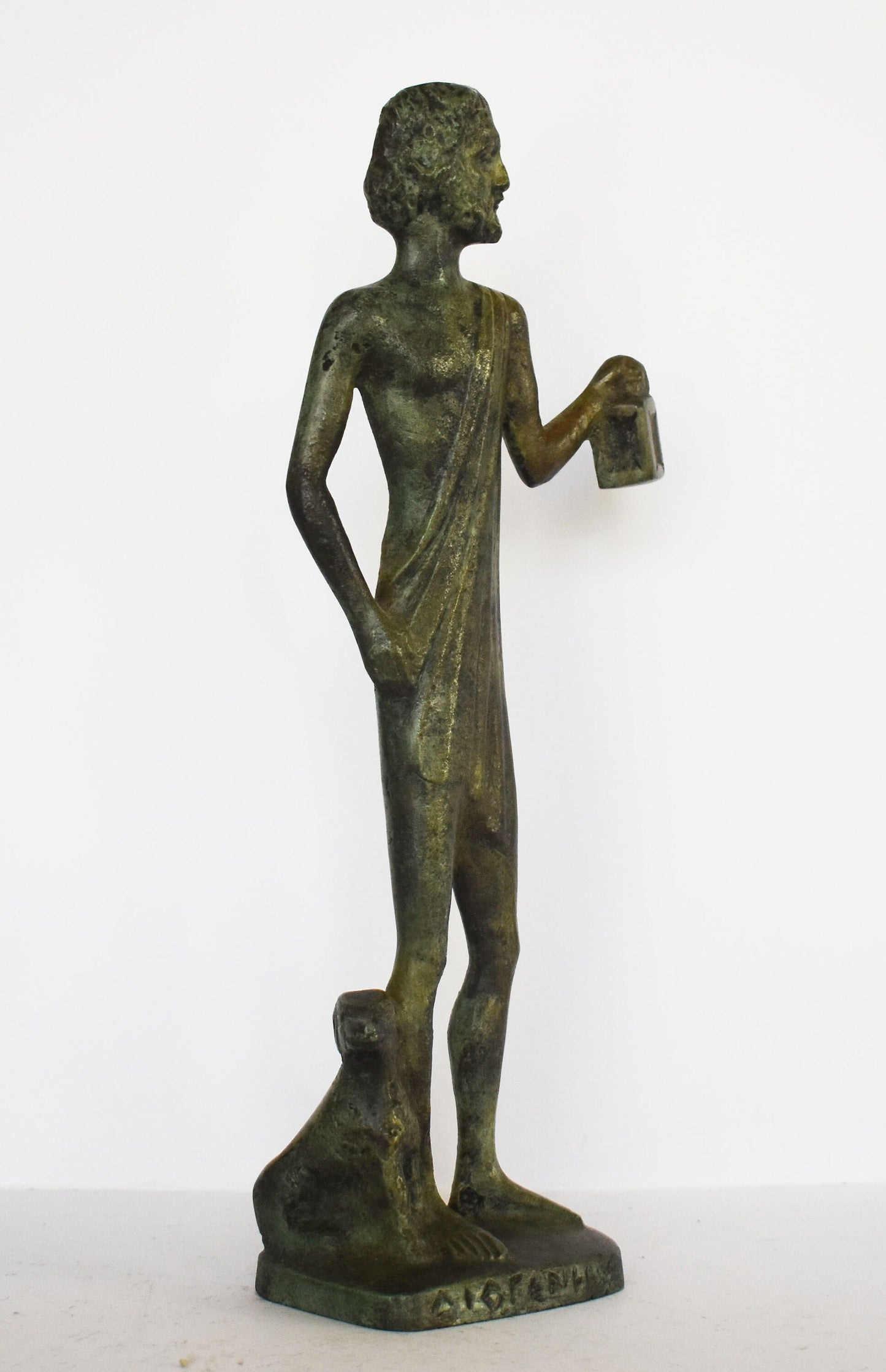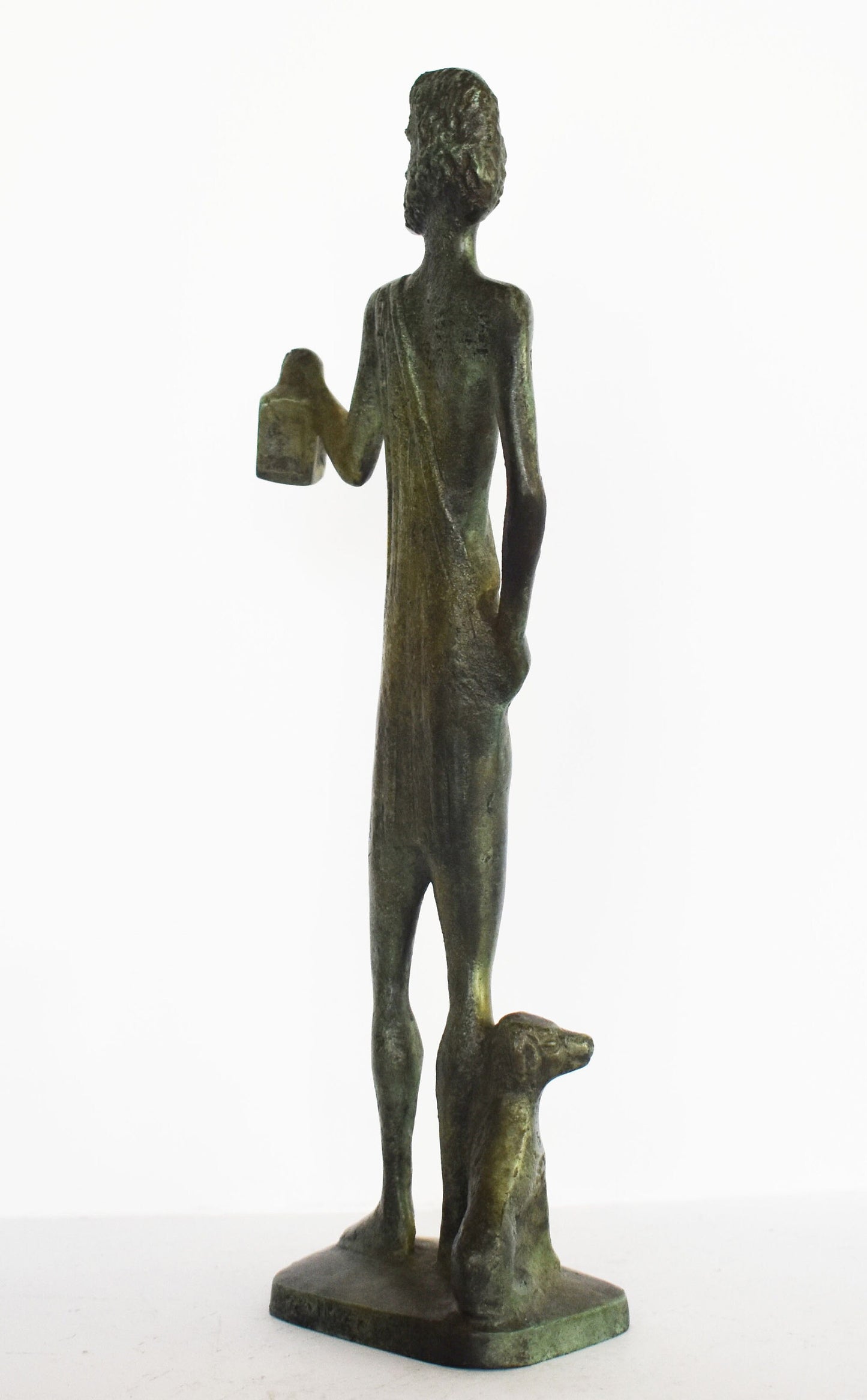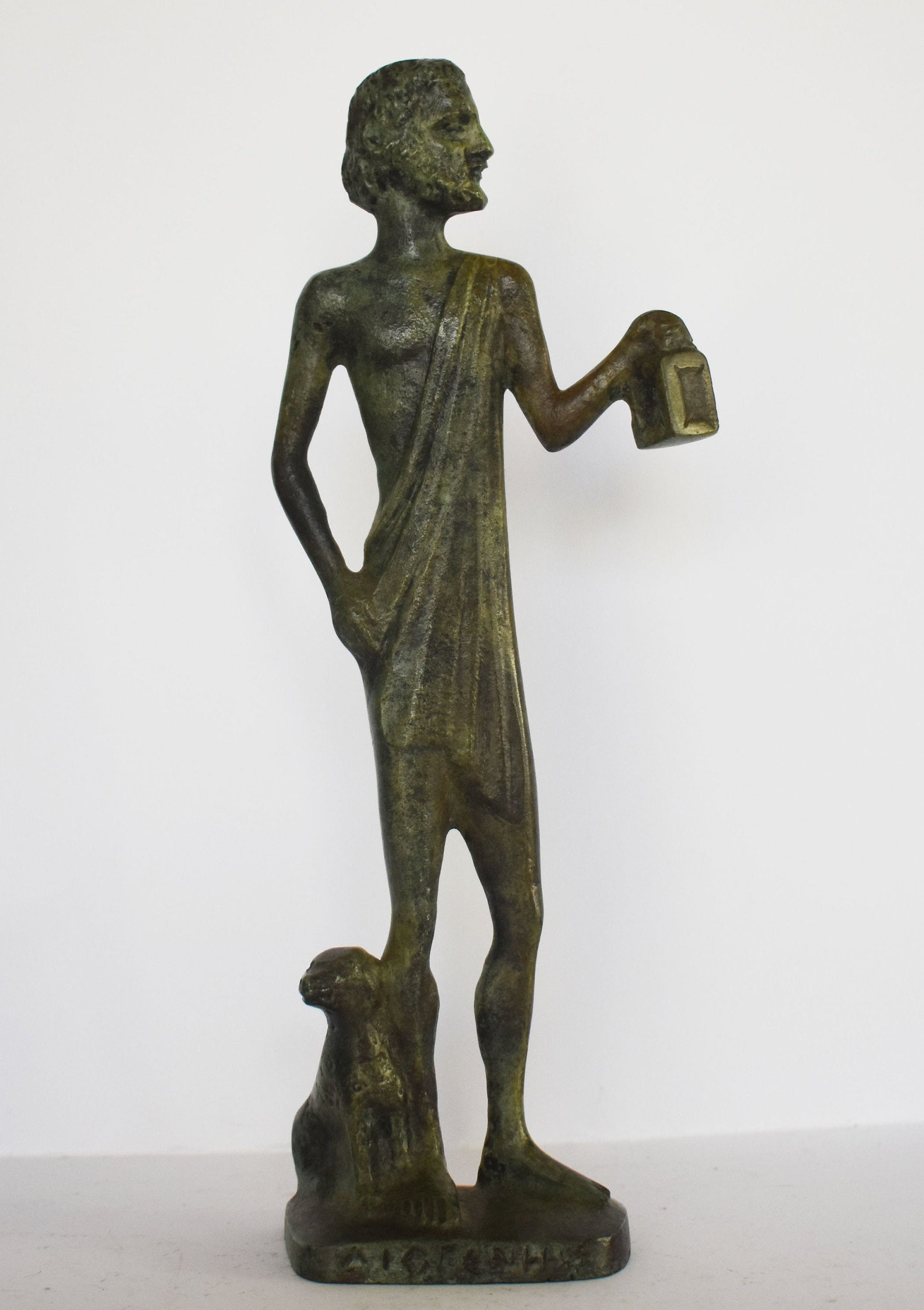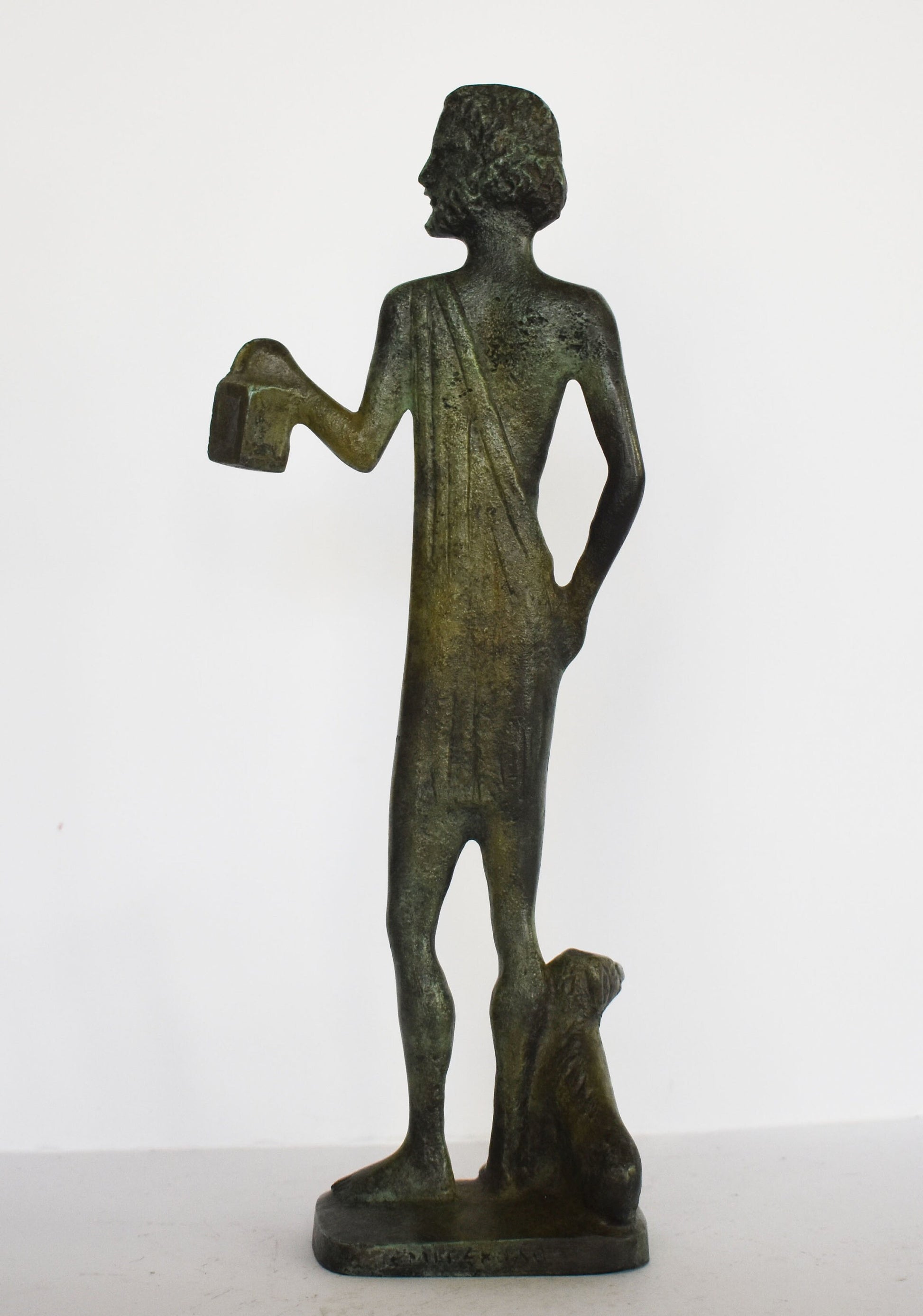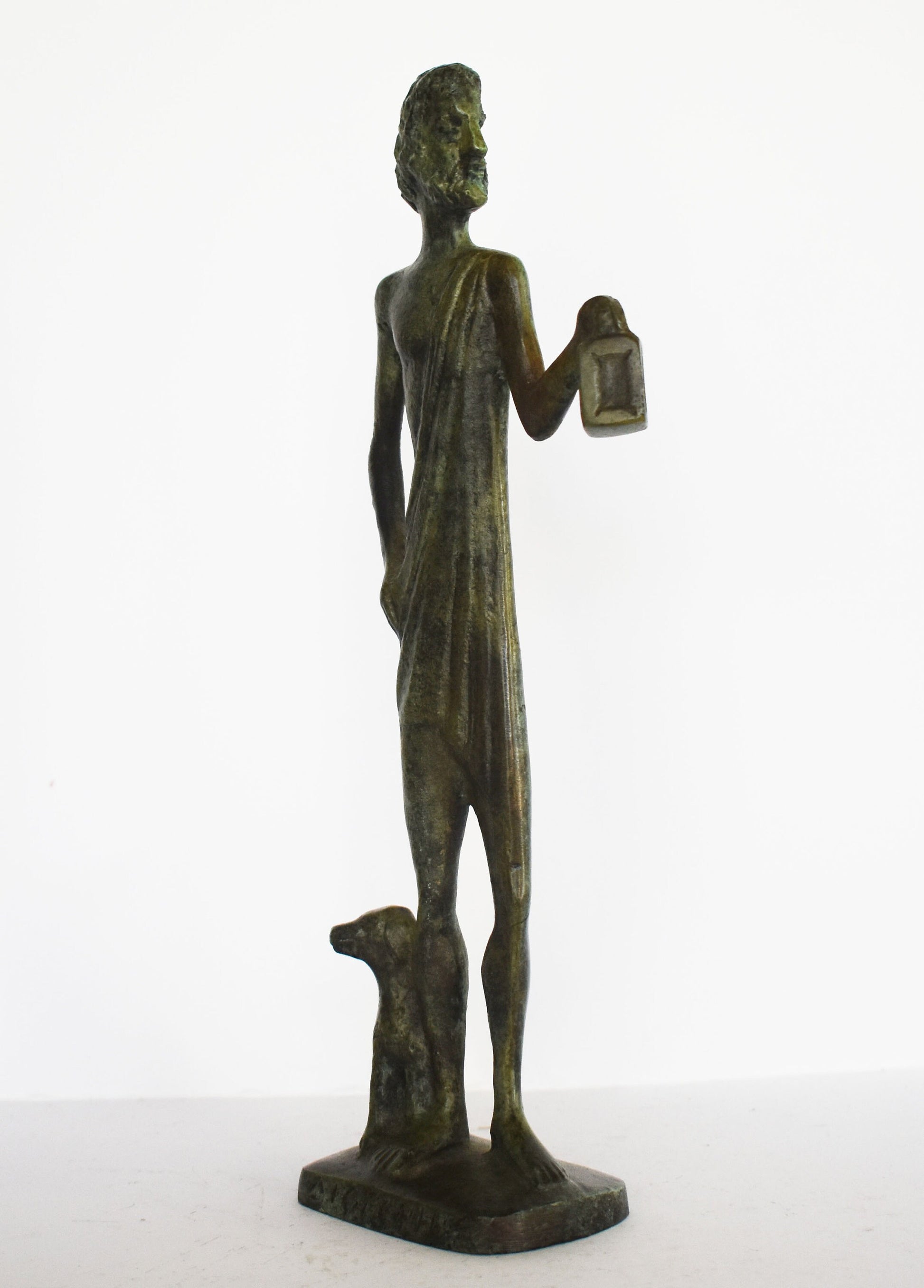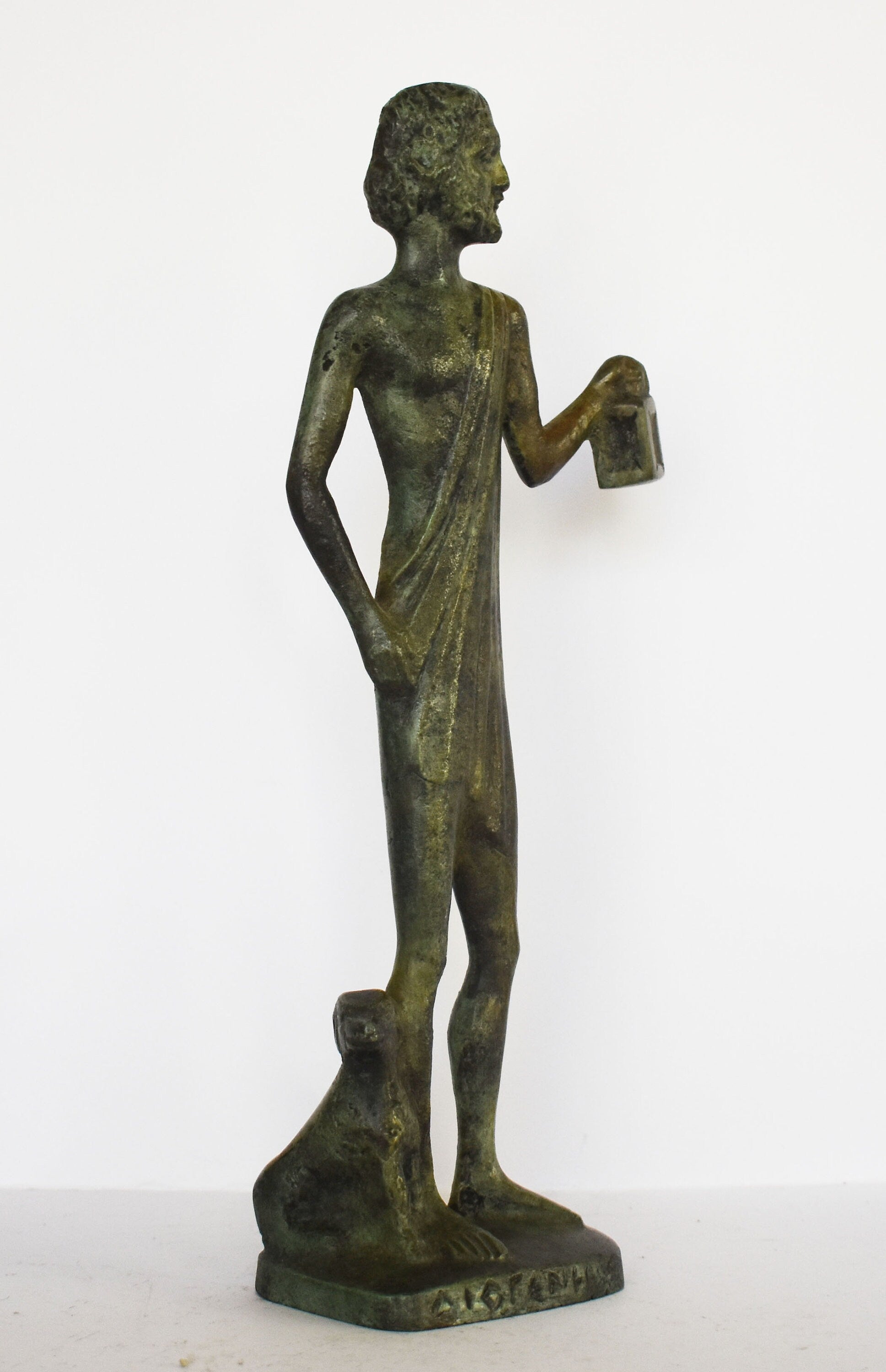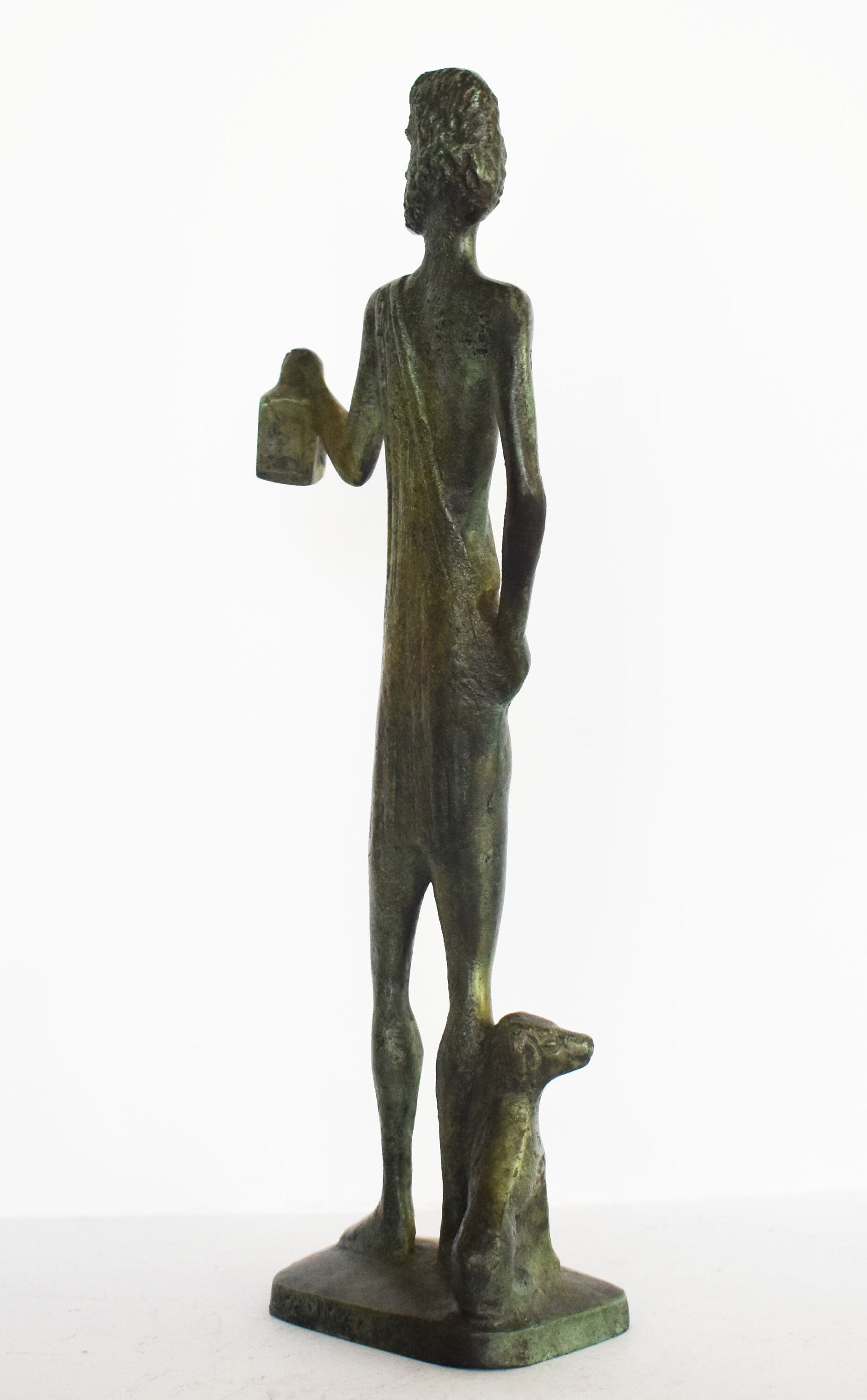Gallery Demeter
Diogenes the cynic philosopher statue - ancient Greek reproduction - pure bronze sculpture
Diogenes the cynic philosopher statue - ancient Greek reproduction - pure bronze sculpture
Regular price
€164,90 EUR
Regular price
Sale price
€164,90 EUR
Unit price
per
Tax included.
Shipping calculated at checkout.
Couldn't load pickup availability
Item Specifics
Condition: New, Made in Greece.
Material: Pure Bronze
Height: 25,5 cm - 10,04 inches
Width: 9,5 cm - 3,74 inches
Length: 5,2 cm - 2,05 inches
Weight: 1100 g
Diogenes was a Greek philosopher and one of the founders of Cynic philosophy. Also known as Diogenes the Cynic , he was born in Sinope, an Ionian colony on the Black Sea, in 412 or 404 BC and died at Corinth in 323 BC
Diogenes was a controversial figure. His father minted coins for a living, and when Diogenes took to debasement of currency, he was banished from Sinope. After being exiled, he moved to Athens and criticized many cultural conventions of the city. Diogenes modelled himself on the example of Heracles. He believed that virtue was better revealed in action than in theory. He used his simple lifestyle and behaviour to criticize the social values and institutions of what he saw as a corrupt or at least confused society. In a highly non-traditional fashion, he had a reputation of sleeping and eating wherever he chose and took to toughening himself against nature. He declared himself a cosmopolitan and a citizen of the world rather than claiming allegiance to just one place. There are many tales about him dogging Antisthenes' footsteps and becoming his "faithful hound". Diogenes made a virtue of poverty. He begged for a living and often slept in a large ceramic jar in the marketplace. He became notorious for his philosophical stunts such as carrying a lamp in the daytime, claiming to be looking for an honest man. He criticized and embarrassed Plato, disputed his interpretation of Socrates and sabotaged his lectures, sometimes distracting attendees by bringing food and eating during the discussions. Diogenes was also noted for having publicly mocked Alexander the Great.
